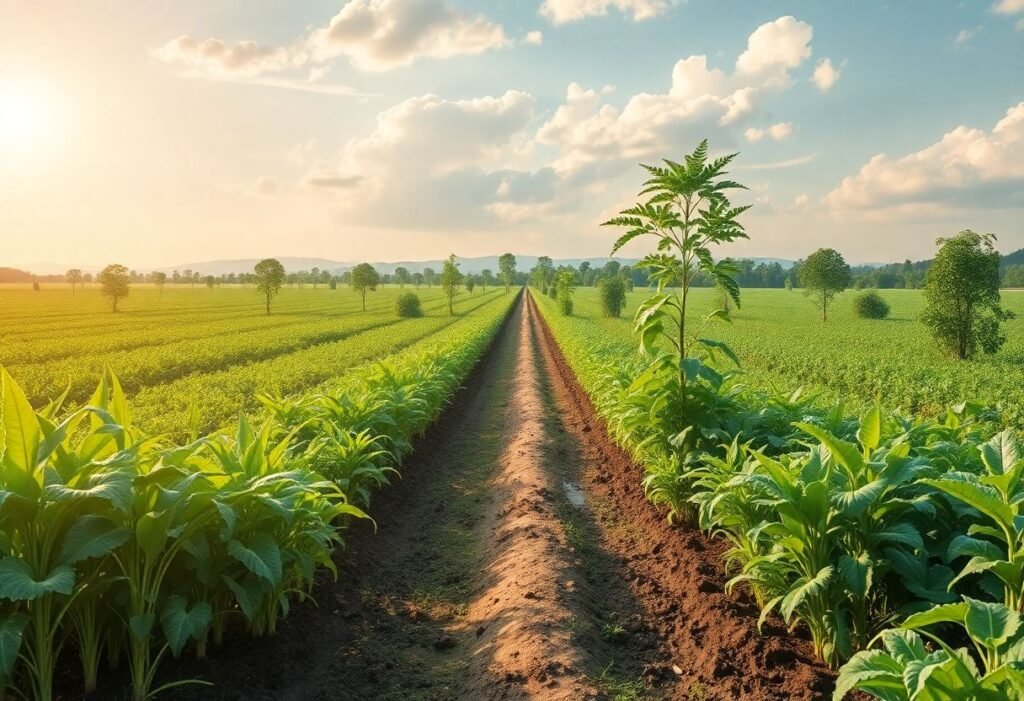Biotechnology is revolutionizing sustainable agriculture by introducing innovative methods that significantly enhance crop yield and resilience. As the world faces pressing challenges like climate change and food security, biotechnology emerges as a key player in transforming agricultural practices for a sustainable future.
The Innovative Techniques of Biotechnology
Biotechnology encompasses a wide range of innovative techniques that improve agricultural practices. Techniques such as genetic modification and CRISPR gene editing enable scientists to develop crops that are resistant to pests and environmental stresses. These innovations ensure higher productivity and lower reliance on chemical pesticides, thus promoting sustainable farming. Furthermore, biotechnology allows for the creation of crops with enhanced nutritional profiles, contributing to better health outcomes for consumers globally.
Reducing Environmental Impact through Biotechnology
One of the significant advantages of biotechnology in sustainable agriculture is its potential to minimize the environmental impact of farming. By developing crops that require less water and fertilizers, biotechnology can significantly reduce the carbon footprint associated with agricultural practices. Moreover, biopesticides derived from natural organisms are increasingly utilized to control pests effectively without harming the ecosystem. These practices contribute to a healthier environment while maintaining agricultural productivity.
Biotechnology in Soil Health Management
Biotechnology plays a crucial role in promoting soil health through innovative techniques. The development of biofertilizers enhances soil fertility and structure, leading to improved crop yields without the adverse effects of synthetic fertilizers. Additionally, biotechnology aids in creating plants that can thrive in less fertile soils, thus expanding the potential for cultivation in previously unusable areas. These advancements contribute to more sustainable land use and effective soil management practices.
Enhancing Food Security with Biotech Innovations
As the global population continues to rise, food security has become an urgent issue. Biotechnology can significantly contribute to solving this challenge by increasing agricultural output and efficiency. Innovations such as drought-resistant crops and high-yield varieties ensure that farmers can produce enough food even in adverse growing conditions. As a result, these biotech innovations are crucial in ensuring food availability and accessibility in various regions.
Public Perception and Acceptance of Biotech in Agriculture
Despite its potential benefits, public perception of biotechnology in agriculture can be mixed. Education and awareness are vital in addressing misconceptions and fostering acceptance of biotech crops. Initiatives aimed at informing the public about the safety and advantages of biotechnologically enhanced agriculture can help in building trust. Emphasizing the positive impact on food security and environmental sustainability is essential in gaining broader acceptance within communities.
The Future of Sustainable Agriculture through Biotechnology
The future of sustainable agriculture hinges on continued innovation within biotechnology. With advancements such as synthetic biology and precision agriculture, the potential for positive impacts on agriculture is immense. As researchers and agriculturalists collaborate to create new solutions, biotechnology will play an increasingly crucial role in addressing the challenges of food production and environmental conservation. This ongoing innovation will pave the way for a resilient agricultural system capable of supporting a growing global population.
Disclaimer: The content provided in this article is for informational purposes only. Always seek professional advice for specific agricultural practices.





















